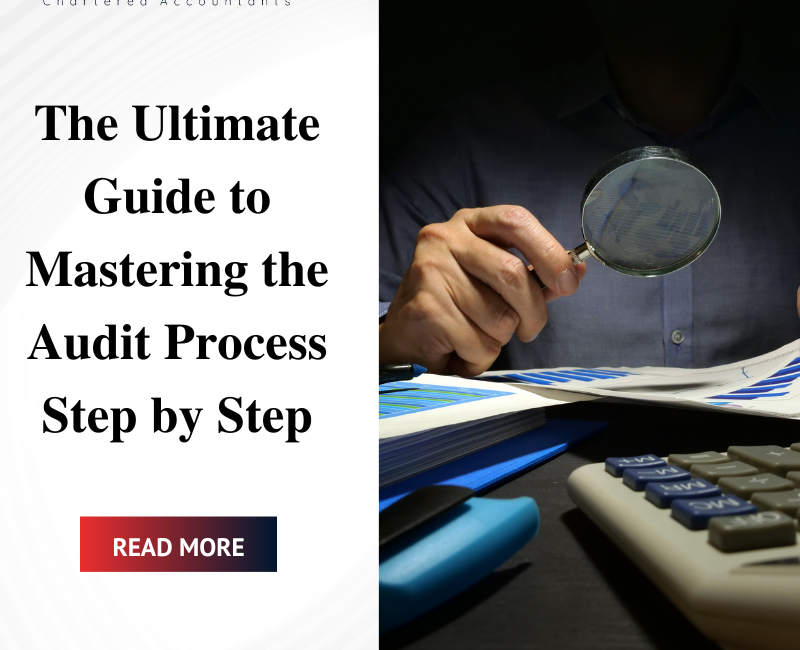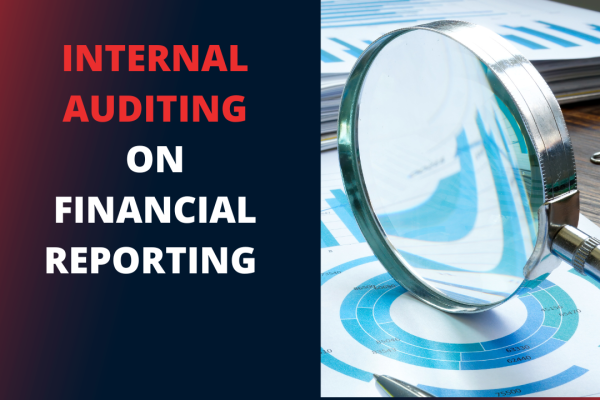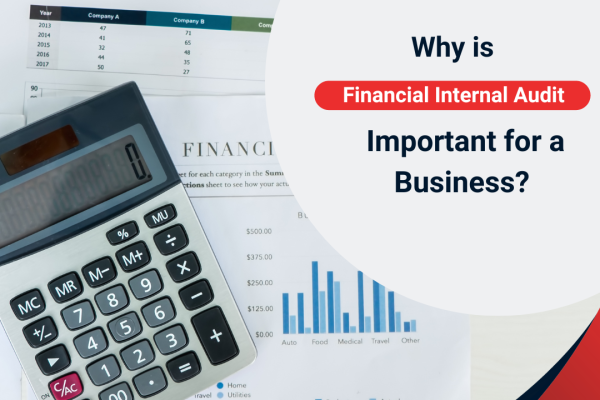The Ultimate Guide to Mastering the Audit Process Step by Step
An audit is a process of evaluating and verifying the financial statements, records, and operations of a business or organization. Audits are crucial for ensuring compliance with regulatory requirements, identifying operational inefficiencies, and detecting fraudulent activities. During an audit, an independent auditor or an internal audit team conducts a thorough examination of the organization’s financial and operational systems. This article will outline what to expect during an audit, including the types of audits, how to prepare for an audit, the audit process, communication during the audit, audit findings, and closing the audit. Understanding what to expect during an audit can help organizations be better prepared for the process and can ensure that the audit is conducted smoothly and effectively.
Different Types of Audits
There are several types of audits that can be conducted, depending on the purpose and scope of the audit. The following are some of the most common types of audits:
External audit: This type of audit is conducted by an independent external auditor who is not an employee of the organization being audited. The purpose of an external audit is to provide assurance to stakeholders that the financial statements are accurate and comply with accounting standards.
Internal audit: An internal audit is conducted by an internal audit team, which is a department within the organization. The purpose of an internal audit is to evaluate and improve the organization’s operations and systems.
Financial audit or Financial statement audit: This type of audit focuses on the financial statements of the organization, such as the balance sheet, income statement, and cash flow statement. The auditor examines the financial statements to ensure that they accurately reflect the financial position and performance of the organization.
Operational audit: An operational audit focuses on the organization’s operations and systems, including processes, policies, and procedures. The purpose of an operational audit is to identify areas where the organization can improve its efficiency and effectiveness.
Compliance audit: A compliance audit is conducted to ensure that the organization is complying with legal and regulatory requirements. The auditor examines the organization’s processes and systems to ensure that they are in compliance with applicable laws and regulations.
Understanding the type of audit that will be conducted is essential for preparing for an audit and ensuring that the appropriate documentation and information are available.
How to prepare for an audit?
Preparing for an audit is an essential step in ensuring a smooth and successful audit process. Here are some of the steps that organizations should take to prepare for an audit:
Notification of audit: The organization will typically receive a notification of the audit, which should include the scope, purpose, and timing of the audit.
Gathering relevant documentation: The organization should gather all relevant documentation, including financial statements, bank statements, tax returns, invoices, contracts, and other financial and operational records.
Assigning an audit team: The organization should assign a team to work with the auditor or audit team. This team should include key personnel who can provide the necessary information and answer questions.
Preparing the audit site: The organization should prepare the site where the audit will be conducted, ensuring that all necessary documentation and equipment are available. The site should also be clean and organized, making it easier for the auditor to conduct the audit.
By taking these steps, organizations can ensure that they are prepared for the audit and that the process goes smoothly. It’s also important to communicate with the auditor or audit team to clarify any questions or concerns they may have before the audit begins.
The process of conducting the audit
Once the organization is prepared for the audit, the audit process can begin. Here are some of the steps involved in conducting an audit:
Meeting with the audit team: At the beginning of the audit, the auditor or audit team will typically meet with the organization’s audit team to discuss the scope of the audit, the timing of the audit, and the procedures that will be used during the audit.
Audit procedures and techniques: The auditor will use various procedures and techniques to examine the organization’s financial and operational systems. These may include sampling, testing, observation, and inquiry.
Reviewing documentation and records: The auditor will review the documentation and records that the organization has provided, including financial statements, bank statements, tax returns, invoices, contracts, and other financial and operational records.
Conducting interviews with staff and management: The auditor will also conduct interviews with staff and management to gather information and clarify any questions they may have about the organization’s financial and operational systems.
Observing business operations: The auditor may also observe the organization’s business operations to gain a better understanding of how the organization operates.
Throughout the audit, the auditor will regularly communicate with the organization’s audit team to provide updates and ask for clarification on any issues that arise. It’s essential for the organization to provide timely and accurate information to the auditor and to cooperate fully with the audit process.
Communication During the Audit
Effective communication during the audit process is crucial for ensuring that the audit is conducted smoothly and that any issues are identified and addressed promptly. Here are some of the communication channels that should be established during an audit:
Regular meetings: The auditor and the organization’s audit team should schedule regular meetings to discuss the progress of the audit, any issues that have arisen, and any questions or concerns that need to be addressed.
Communication protocol: It’s important to establish a communication protocol between the auditor and the organization’s audit team to ensure that all communication is timely, clear, and documented.
Responding to requests: The organization’s audit team should respond promptly to any requests for information or documentation from the auditor.
Escalating issues: If any issues or concerns arise during the audit, the organization’s audit team should escalate these issues to management and work with the auditor to address them promptly.
Closing meeting: At the end of the audit, the auditor will typically hold a closing meeting with the organization’s audit team to discuss the audit findings, any recommendations, and any areas where the organization can improve its financial and operational systems.
By establishing clear and effective communication channels during the audit, organizations can ensure that the audit is conducted smoothly and that any issues are identified and addressed promptly.
Findings during the audit
After completing the audit, the auditor will provide the organization with an audit report that outlines the audit findings. The audit report may include the following:
Audit opinion: The auditor will provide an opinion on the financial statements, indicating whether they are accurate and comply with accounting standards.
Audit findings: The auditor may identify areas where the organization’s financial and operational systems can be improved, and may make recommendations for how the organization can address these issues.
Management response: The organization’s management will typically provide a response to the audit findings, indicating how they plan to address any issues identified in the audit.
Action plan: The organization will develop an action plan to address any issues identified in the audit report. This plan should include timelines, responsibilities, and measures for monitoring progress.
It’s important for organizations to take the audit findings seriously and to address any issues identified in the audit report promptly. Failure to do so could result in reputational damage, financial losses, or regulatory sanctions. By taking the audit findings seriously and addressing any issues promptly, organizations can improve their financial and operational systems and strengthen their overall operations.
Closing the Audit
Closing the audit involves finalizing the audit report, addressing any outstanding issues, and concluding the audit process. Here are some of the steps involved in closing the audit:
Finalizing the audit report: The auditor will finalize the audit report, including any revisions or updates based on the organization’s response to the audit findings.
Reviewing the audit report: The organization’s audit team and management will review the audit report to ensure that all issues have been addressed and that the report is accurate and complete.
Addressing outstanding issues: If there are any outstanding issues that were identified during the audit, the organization will work with the auditor to address these issues promptly.
Responding to the audit report: The organization’s management will typically provide a formal response to the audit report, indicating how they have addressed the audit findings and any outstanding issues.
Closing meeting: The auditor and the organization’s audit team will typically hold a closing meeting to discuss the audit findings, the organization’s response, and any outstanding issues.
By closing the audit in a timely and thorough manner, organizations can ensure that the audit process has been completed successfully and that any issues have been addressed. This can help to strengthen the organization’s financial and operational systems, build trust with stakeholders, and ensure compliance with regulatory requirements.
Conclusion
In conclusion, undergoing an audit can be a challenging process for organizations, but it is a crucial part of maintaining strong financial and operational systems. By understanding the types of audits, preparing for the audit, conducting the audit, communicating effectively with the auditor, addressing any audit findings, and closing the audit promptly, organizations can ensure that the audit process is completed successfully and that any issues are addressed in a timely manner.
While an audit can be an opportunity to identify areas for improvement, it is also important to recognize that the audit process can be a valuable learning experience for organizations. By working closely with the auditor, organizations can gain a deeper understanding of their financial and operational systems and identify opportunities to improve their processes and procedures.
Overall, by taking the audit process seriously and committing to addressing any issues identified, organizations can build trust with stakeholders, strengthen their financial and operational systems, and ensure compliance with regulatory requirements.
I.P. Pasricha & Co is a renowned CA firm providing various audit services to businesses, including statutory audit, tax audit, internal audit, management audit, etc. With their team of experienced professionals and in-depth knowledge of accounting and taxation, they ensure compliance with legal and regulatory requirements. If you’re looking for reliable and comprehensive audit services for your business, contact I.P. Pasricha & Co today.




